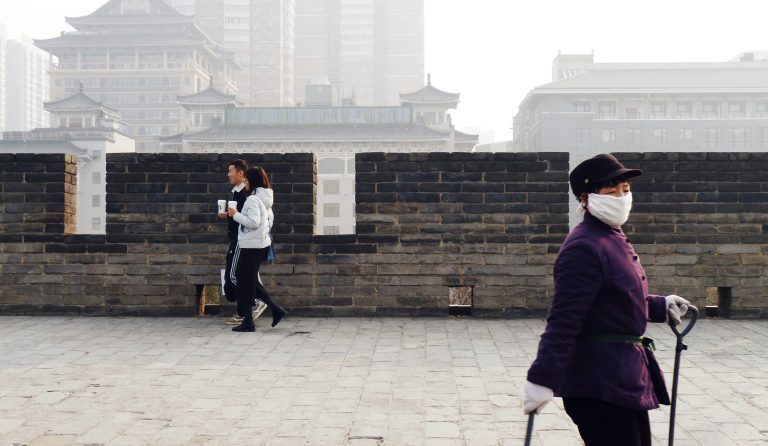
This year marks the 35th year I have been involved with ministry to Chinese, beginning with a short-term summer missions project to China during my years as a university student. Over the past 35 years, I have witnessed massive changes in society and in the church in China. Although in my earlier years I did not know much about the house church, I became increasingly involved with this marginalized community as time went on. The last ten years have been primarily focused on church development and theological education.
Over the past ten years, some observations have struck me as I’ve watched men and women grow in their calling to ministry. For the sake of brevity and space, I chose three which are significant factors in the growth of believers in China and throughout the world, as well as in my own spiritual growth.
First, prayer is an indispensable tool that is easily neglected but often taken up when circumstances are difficult, as they are for many house church Christians. The first time I prayed with a house church Christians was in 1991, during a gathering in a countryside village deep in central China. It was a winter morning shortly before 5 when we woke and prayed with local church leaders. We knelt on a hard concrete floor, and the winter cold was biting. I felt extremely unspiritual, because all I could think about was how uncomfortable I was. Over the years, as I have reflected on this and the many other times since then I’ve prayed with my house church brothers and sisters, the culture of prayer that has carried over from the earliest days of the house church in China rings true. Their prayers are often ones of lament or desperation, but they are also filled with hope. When they are harassed, persecuted, beaten, arrested or mistreated by the authorities, most house church believers recognize that they have no recourse other than to take their grief and lament to the Lord and pray for his grace and strength. They have no politicians who represent them, nor do they possess political power to leverage circumstances to achieve a favorable outcome when things get bad. Prayer becomes, for them, a precious tool. This does not mean they are immune to sin and temptation. I’ve seen others turn to anger and aggressive behavior when faced with persecution and harassment, their flesh getting the better of them. Those of us on the outside mustn’t hold out some unrealistic view of what house church Christians are like. This actually does a disservice to the reality of their sufferings. They are sinners, saved by grace, who struggle with how to respond to suffering.
John Piper writes in Let The Nations Be Glad that, “Life is war. That’s not all it is. But it is always that. Our weakness in prayer is owing largely to our neglect of this truth. Prayer is primarily a wartime walkie-talkie for the mission of the church as it advances against the powers of darkness and unbelief. It is not surprising that prayer malfunctions when we try to make it a domestic intercom to call upstairs for more comforts in the den. God has given us prayer as a wartime walkie-talkie so that we can call headquarters for everything we need as the kingdom of Christ advances in the world. Prayer gives us the significance of frontline forces and gives God the glory of a limitless Provider.”
This brings me to the second thing I’ve learned from the house church: suffering. Amidst persecution and harassment, a robust theology of the cross and of suffering is both essential and practical. While Chinese house church believers are not immune to the temptation of using prayer as a “domestic intercom”, circumstances often remind them that the “wartime walkie-talkie” is more urgently needed. When obstacles remind one of how “outnumbered” one is—both as individuals and as a church—one sees more clearly. Understanding that union with Christ is both a corporate and an individual union is forged in the crucible of suffering, no matter how that suffering presents itself. Chinese house church Christians are not the only ones who suffer, nor are their sufferings perhaps the most severe. In other parts of the world union with Christ is essentially a death sentence, but whether there is the threat of physical death or persecution, or just the call to deny yourself and take up your cross, union with Christ is a call to die. This is easy to forget when life is comfortable.
Never miss a story
The third lesson I have learned from the house church has been about the church. In the absence of stable institutions such as churches and schools, the Chinese house church has had to reflect on what makes them the church. Currently, many house church believers feel their children need an education that does not push an atheistic worldview. This has led them to start their own grassroots primary and secondary schools. Others have explored home schooling. Pressure on those who wish to provide this kind of education for their children is mounting. In the eyes of the central government, education is not only about educating children to become productive members of society, it is about promoting a particular political agenda. Anyone who threatens this plan runs the risk of attracting the ire of the authorities.
The Chinese house church community has many flaws and imperfections, but is bound together by a shared position of resisting the indoctrination efforts of the authorities. Resistance, for the most part, is not based on desires for political freedom, but on biblical convictions that Christ, not Caesar, is the head of the church. House church believers that I have come to know personally echo this sentiment over and over.
The church shares a deep connection in Christ that goes beyond institutionalism. Relationships become essential. This may sound clear cut, but in reality is quite messy. Security concerns often cause believers to question who they can trust. House churches can exist in the same neighborhood for years and never even know of one another. Despite these and many other obstacles, the church possesses a vitality that often gets muted when institutionalism is not properly balanced with a biblical emphasis on relationality.
I have been blessed to spend a significant amount of time co-laboring with the house church in China. Over the past decade I have been especially able to fully immerse myself in an incarnational style of ministry, mourning with them over the death of loved ones, rejoicing with them at the birth of their children. I have been blessed to officiate both funerals and baptisms, and have preached and taught alongside leaders whom I greatly respect, some of whom are currently in prison for their witness. I have both educated them and been educated by them, and I am the richer for these experiences.
Urban Farmer has been involved in ministry to Chinese for more than 30 years. He and his family have spent much of their lives laboring in Asian cities to sow and tend Christian faith. His pseudonym is reflective of his efforts in this work.
FOR PRAYER AND REFLECTION
-Pray that suffering of all kinds will drive Chinese believers to pray and depend on Christ. Pray also that their understanding of the church will sustain and unite them through whatever circumstances they face.
Our blog exists, not just to share information, but to resource the global church to share the joys and burdens of the Chinese church. Our hope is that everything you read here will lead you to intentional, knowledgeable prayer for the Chinese church.































